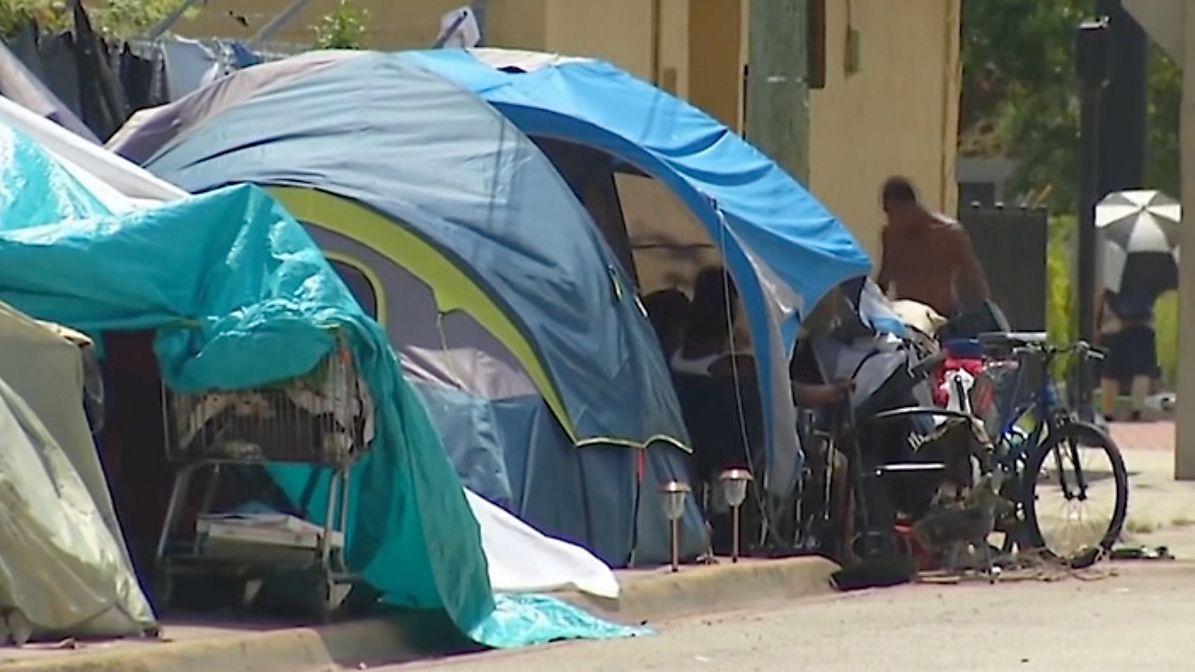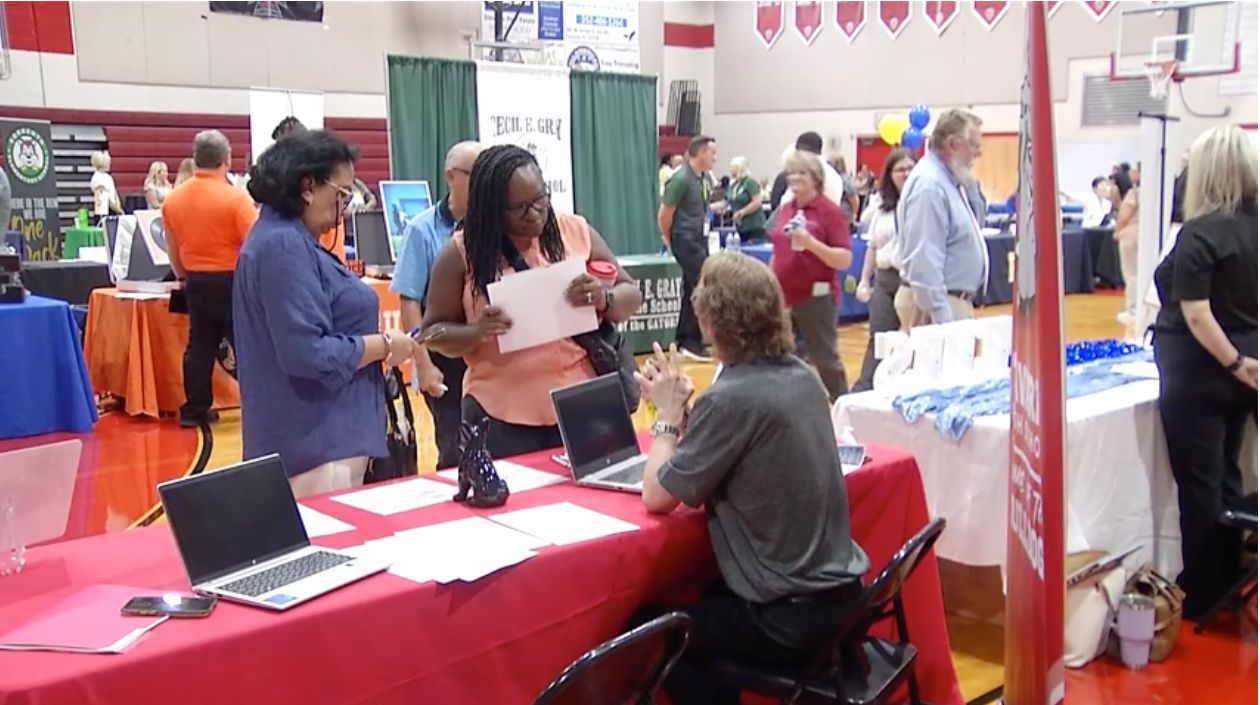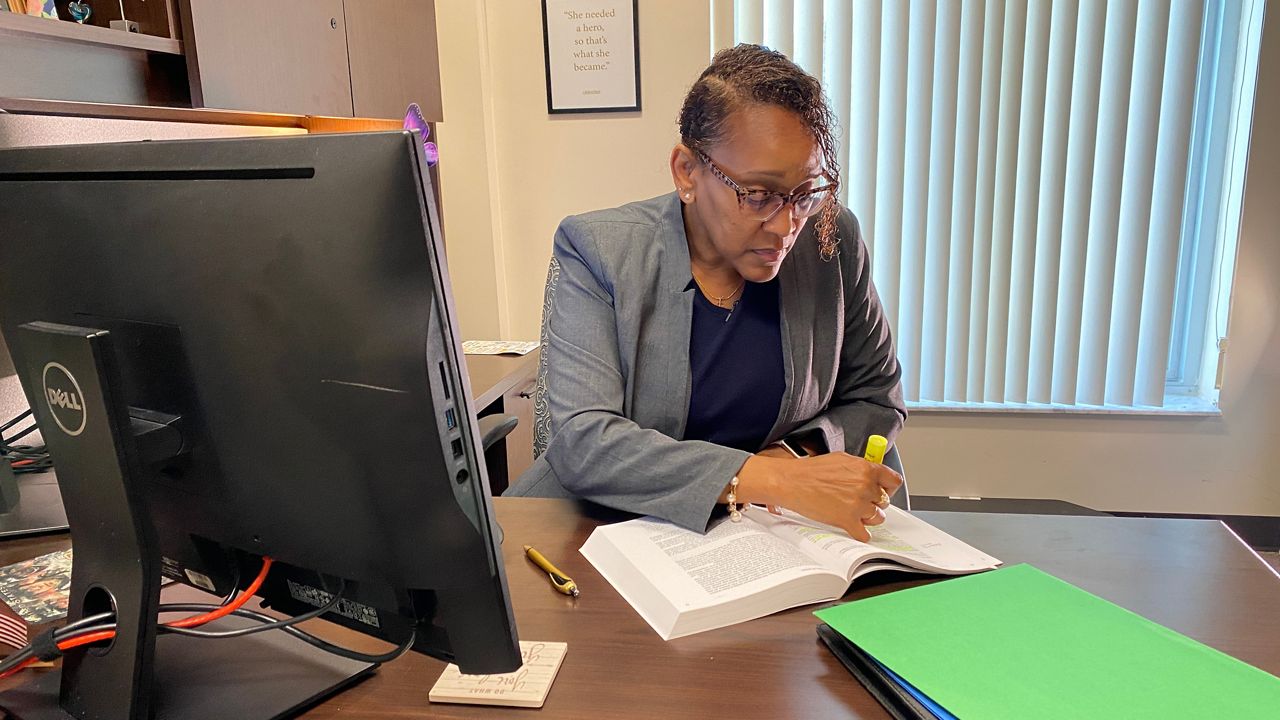ORLANDO, Fla. — A crane is expected to arrive next week to start taking down the Orlando FreeFall ride, attorneys for the ride’s operator, Orlando Eagle Drop Slingshot LLC, confirmed Tuesday.
What You Need To Know
- Tyre Sampson died after falling from the FreeFall ride
- Since then the ride has been shut down
- Now, it has a date for dismantling
“We hope to have the ride fully deconstructed before the anniversary of Tyre Sampson’s tragic death, and we will continue to work in that direction and give timeline updates as they are available,” attorney Trevor Arnold said in a written statement provided to Spectrum News.
March 24 will mark one year since 14-year-old Tyre Sampson fell to his death from the 450-foot drop tower ride. Since then, Florida’s Department of Agriculture and Consumer Services (FDACS) has finished its investigation into the incident and reached a settlement with the ride’s operator, after the state agency filed an administrative complaint against them.
Per the agreement, Orlando Eagle Drop Slingshot LLC was fined $250,000, and agreed to never operate the drop tower ride again, beyond any inspections or tests that may be necessary to prepare to remove the ride from its current location at ICON Park.
Meanwhile, as Florida’s legislative session kicks off, state lawmakers are set to consider implementing SB 902, the “Tyre Sampson Act,” which Orlando Democratic Senator Geraldine Thompson filed last month. The proposed law would ramp up the state’s authority to oversee amusement rides, including by allowing for unannounced ride inspections. It would also create minimum training standards for ride attendants, among other things.
But if passed, SB 902 would also activate a piece of companion legislation: SB 904, currently titled “Public Records/Active Amusement Ride Investigation.” That proposed law would create a public records exemption for materials related to an amusement ride investigation FDACS is conducting until that investigation concludes or is no longer active.
The proposed public records exemption is a concern for operational safety consultant Brian Avery, who’s spent decades of his career focused on improving the safety of amusement rides and attractions.
“I have serious concerns about limiting access to records and releasing findings after completing an investigation, one that could take years to arrive at a conclusion,” Avery wrote in an email to Spectrum News.
Shortly after filing both proposed bills last month, Sen. Thompson answered Spectrum News’ questions about SB 904 over the phone.
“It keeps the investigation confidential until it is complete,” Thompson told Spectrum News. After that, she said, materials would be made publicly available – but “not all of the intricacies of the investigation.”
Thompson did not address whether SB 904 was inspired by anything specifically related to the state’s investigation of the FreeFall case.
“Just the fact that you don’t want to make assumptions until you have completed the investigation, or to assign liability or culpability until the investigation is finished. That’s all that triggered this,” Thompson said.
Last year, Spectrum News 13’s Watchdog team acquired surveillance video of Sampson boarding the FreeFall ride, and staff members apparently altering inspection records for the ride the morning after his death. FDACS officials confirmed that the video was part of their investigation.
Earlier last year, the state hired an engineering consulting firm to analyze the ride, and published their analysis. The analysis revealed two specific seats had been manipulated, allowing the ride to operate even if the harnesses on those seats didn’t fully close. Ride attendants were trained to direct larger guests to those two specific seats, according to the state’s investigative report and a former employee who spoke with Spectrum News over the phone.
FDACS published the engineering firm’s report in April, long before officially finishing its investigation in November.
When asked whether SB 904 would prevent such publications moving forward, Thompson responded that she didn’t know if it would be “that specific.”
Although the FreeFall ride’s manual mentions seat belts, the ride had no secondary safety restraint for guests beyond a pull-down harness, which did not properly fit Sampson, according to surveillance video.
The ride’s manual also mentions a weight limit of roughly 286 pounds. Sampson weighed at least 300 pounds, according to family members. Ritchie Armstrong, the ride’s general manager, mistakenly said the ride had “no weight limit” during a press conference before the ride first opened.
“No, there’s no weight limit… if you fit safely into the seat, then you ride,” Armstrong said back then, in January 2022.
In his deposition with the state, Armstrong denied knowing that staff were being trained to seat larger guests in two seats that had been manipulated, according to FDACS’ 751-page investigative report.
In a written statement, attorneys representing Sampson’s mother Nekia Dodd expressed relief that the ride would soon be dismantled.
“Ms. Dodd requested this very action shortly after Tyre was tragically taken from her,” reads the statement by attorney Michael Haggard. “While this is a welcome development, Ms. Dodd and her attorneys at The Haggard Law Firm ask that the disassembling of the ride does not remove the memory of this tragedy. Ms. Dodd remains focused on real change in the oversight and operation of thrill rides and accountability by any party involved in failing to keep theme park guests safe. It is part of Tyre’s legacy. A legacy that can never be stripped down.”









